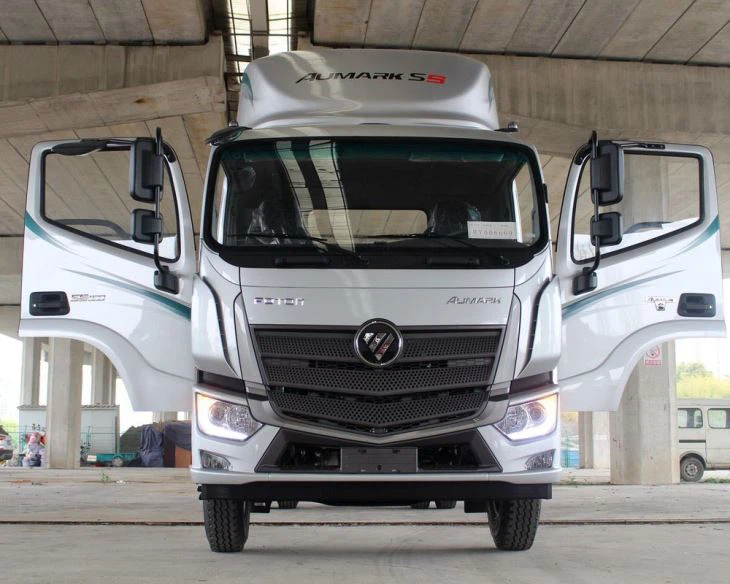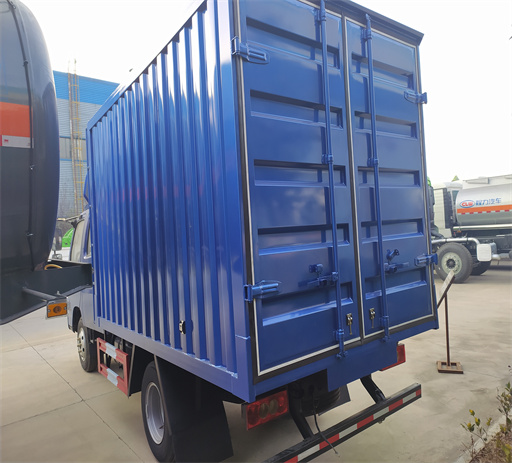Everything You Need to Know About Loader Trucks

Introduction
Loader trucks are an essential component in various industries, from construction and agriculture to mining and logistics. These powerful vehicles are designed to move heavy materials swiftly and efficiently. Their versatility, combined with advanced technology, makes them invaluable on job sites. This article delves into the intricacies of loader trucks, covering their types, functions, benefits, maintenance tips, and frequently asked questions to equip you with a comprehensive understanding of this vital machinery.
What are Loader Trucks?
Loader trucks, often referred to as front-end loaders or simply loaders, are heavy equipment used primarily for loading materials such as dirt, gravel, sand, and debris onto trucks or into other machinery. They come equipped with a front-mounted bucket, which allows for a wide range of activities, including lifting, pushing, and carrying materials. These trucks are crucial in various applications, from construction sites to farms and recycling facilities.
Types of Loader Trucks
Loader trucks come in various types, depending on their design, size, and intended use. Here are some of the main types:
1. Wheel Loaders
Wheel loaders are characterized by their wheels for mobility, making them suitable for transporting loads over surfaces that are not too rough. They are commonly used in construction and landscaping.
2. Track Loaders
Track loaders, or crawler loaders, have tracks instead of wheels, which provide superior traction and stability on uneven terrain. These are ideal for heavy-duty applications in construction and forestry.
3. Skid-Steer Loaders
Skid-steer loaders are smaller and highly maneuverable, with a compact design. They are notable for their capability to work in tight spaces and their ability to use various attachments, such as forks or brooms.
4. Mini Loaders
Mini loaders are designed for smaller jobs and are easier to transport due to their compact size. They are commonly used in residential landscaping and smaller construction projects.
Loader Truck Components
Understanding the components of loader trucks helps in appreciating their functionality. Key components include:
- Engine: Provides power to perform all loader functions.
- Transmission: Transfers power from the engine to the wheels or tracks.
- Hydraulic System: Essential for lifting and lowering the bucket.
- Bucket: The primary tool for loading and moving materials.
- Cab: The operator’s area, often equipped with controls and safety features.
How Loader Trucks Work
Loader trucks utilize a combination of mechanical, hydraulic, and electrical systems to perform various tasks. Here’s a simplified outline of their operation:
Hydraulic System Operation
The hydraulic system plays a critical role in loader truck functions:
- The operator activates controls in the cab.
- Hydraulic fluid is pumped through hoses to lift the bucket.
- The cylinders convert hydraulic pressure into mechanical motion to raise and lower the bucket.
Loading and Unloading Materials
Loader trucks typically follow these steps:
- The operator positions the truck near the material to be loaded.
- The bucket is lowered and moved into position.
- The bucket is filled by lifting and tilting as needed.
- The truck transports the load to the designated area, unloads, and returns for more.
Benefits of Using Loader Trucks
Loader trucks provide numerous advantages for businesses and operations:
1. Increased Efficiency
Loader trucks significantly speed up loading and unloading processes, leading to higher productivity on job sites.
2. Versatility

With various attachments available, loader trucks can perform multiple tasks, including excavation, grading, and material handling.
3. Enhanced Safety
Modern loader trucks come equipped with advanced safety features, reducing the risk of accidents compared to manual loading methods.
4. Cost-effective Operations
Investing in loader trucks can lead to long-term cost savings by minimizing labor costs and improving operational time.
Practical Tips for Operating Loader Trucks
Operating a loader truck requires skill and knowledge. Here are some practical tips to ensure safe and effective operation:
1. Conduct Pre-Operation Checks
Before using a loader truck, always perform a pre-operation check, including:
- Inspecting the hydraulic system for leaks
- Checking tire pressure and condition
- Ensuring lights and safety equipment are functioning

2. Proper Loading Techniques
To avoid tipping and uneven loading:
- Load the bucket evenly
- Keep the bucket low while driving
- Avoid sudden movements that could destabilize the load
3. Site Awareness
Be aware of your surroundings. Always look out for other workers, equipment, and hazards in the loading area.
4. Training and Certification
Ensure operators are properly trained and certified for loader truck operation to enhance safety and efficiency.
Maintenance Tips for Loader Trucks
Regular maintenance is vital for ensuring the longevity and efficiency of loader trucks. Here are some essential maintenance tips:

1. Regular Fluid Checks
Periodically check and change hydraulic fluid, engine oil, and coolant levels to prevent overheating and mechanical failures.
2. Tire and Track Maintenance
Inspect tires regularly for wear and proper inflation. For track loaders, ensure tracks are tensioned correctly to avoid damage.
3. Clean the Equipment
Keep the loader truck clean to prevent rust and corrosion. Regularly wash the components, especially after working in muddy or dusty conditions.
4. Scheduled Inspections
Set up a routine inspection schedule performed by qualified technicians to identify potential issues early on.
Loader Trucks in Various Industries
Loader trucks are utilized across different industries, each employing them for unique purposes:
1. Construction
In construction, loader trucks are used to move heavy materials, dig trenches, and assist in building foundations.
2. Agriculture
Farmers use loader trucks for tasks like loading feed, manure, and other materials necessary for farm operations.
3. Mining
In mining, loader trucks help extract and transport minerals and ores, playing a crucial role in the mining process.
4. Waste Management
Waste management companies utilize loader trucks to move debris and waste materials efficiently from one location to another.
Cost of Loader Trucks
The cost of loader trucks can vary widely based on factors such as size, type, brand, and condition (new vs. used). Here’s a breakdown of typical average costs:
| Type of Loader | Average Cost (USD) |
|---|---|
| Wheel Loaders | $100,000 – $500,000 |
| Track Loaders | $100,000 – $600,000 |
| Skid-Steer Loaders | $25,000 – $75,000 |
| Mini Loaders | $20,000 – $50,000 |
When budgeting for a loader truck, consider additional costs such as maintenance, fuel, insurance, and operator training.
Frequently Asked Questions (FAQ)
1. What is the main purpose of a loader truck?
A loader truck is primarily used for loading materials onto trucks or into other machinery for transport and use in construction, agriculture, and other industries.
2. How do I choose the right loader truck for my needs?
Consider factors such as the type of work you’ll be doing, the terrain, load capacity, and whether you need a machine that can use various attachments.
3. What safety features are typically found on loader trucks?
Common safety features include seat belts, rollover protection structures (ROPS), audible alarms, and proper lighting for visibility.
4. How often should I maintain my loader truck?
Regular maintenance should include daily checks, fluid changes every 250-500 hours of operation, and scheduled inspections as per the manufacturer’s guidelines.
5. Can loader trucks be used in winter conditions?
Yes, many loader trucks are designed to operate in various weather conditions. However, operators should take precautions like using winter tires and being cautious on icy surfaces.
6. Are loader trucks environmentally friendly?
Modern loader trucks are designed with better fuel efficiency and lower emissions, making them more environmentally friendly than older models.
